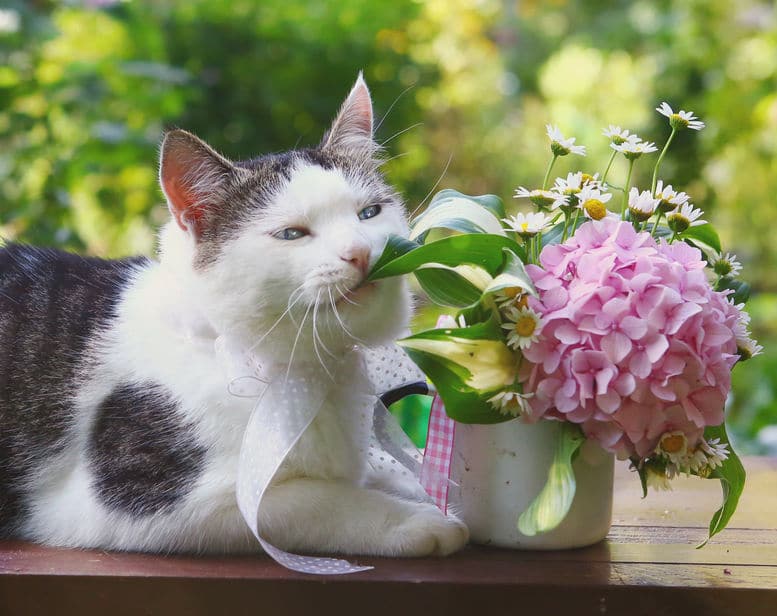For what reason Do Cats Chew?
There are a ton of justifications for why your feline may be eating ceaselessly on anything from wires to your number one sweater. They could be biting for interest, tension, or even to alleviate throbbing gums.
While the vast majority of these basic issues don’t require clinical consideration, biting itself can be very risky to your feline.
Our homes are brimming with non-feline well disposed objects. Think wires, cleaning supplies, or materials that can impede their stomach-related frameworks.
Felines ought not to be biting on anything that isn’t their food or a protected toy (erring on this in a second). This implies you could need to be inventive about keeping his number one bite targets concealed until you can bring an end to him this propensity.
The Curious Chewer
Like young doggies, a few felines very much prefer to taste life. Everything revolves around investigating and they presumably partake in the material experience of chewing。
However, felines have delicate stomach-related frameworks, and ingesting unfamiliar items can bring about awkward kitties and high hospital expenses. (Also the harm to your #1 sweater.)
The Anxious Chewer
A few types of felines are simply normally more nervous, If you have a feline that is inclined to tension — and this could be set off by various things, similar to a movie, another pet, insufficient mental feeling — your feline could take out his dissatisfactions on irregular family objects.
All things considered, biting is a feline sense and could give them solace. Biting copies how they handle prey and is a characteristic way of behaving.
Assuming you have a restless chewer, consider giving him a protected toy intended for biting that assists them with scratching this tingle. When a feline has an objective for biting, they frequently settle down and bite away.
The Achy Chewer
Once in for some time, biting can be an indication of a clinical issue, be specific, throbbing gums. What’s more, this seems OK. Pups, infants, and even rudimentary matured youngsters, all bite to calm gums when they are getting teeth.
Your feline, nonetheless, doubtlessly isn’t getting teeth, however sore, throbbing gums are still behind this way of behaving.
In the event that your feline has red gums, it very well may be smart to have a vet look at him to ensure the dental sickness isn’t the basic reason for his over-the-top biting.
In like manner, in the event that your feline is slobbering and licking as well as biting, it very well may be an indication of gastrointestinal issues. Regardless, assuming you are uncertain of what is prompting the way of behaving, check with your vet to ensure your feline doesn’t have one of these medical problems.
The Usual (Household) Suspects
Felines will generally focus on a couple of normal family protests, every one of which brings its own arrangement of difficulties. A few felines incline toward delicate textures that could emulate the sensation of prey in their mouths. Textures can be risky on the grounds that felines will swallow pieces, which could deter their stomach-related frameworks. Additionally, a few textures could have enhancements, for example, sequins or little fastens that can be perilous.
Different felines pursue wires. These are among a portion of the more hazardous targets since they can get stunned or seriously consumed. Assuming that is your feline’s go-to protest, consider quick activity to stow away or cover wires.
Another most loved target plant. That might appear to be OK, however numerous family plants are harmful to felines. Also, regardless of whether they’re not noxious, they might disturb your feline’s touchy stomach-related framework.
A few normal indoor or open air establishes that are harmful to felines include:
- Daffodils
- Lillies
- Tulips
- English Ivy
- Chrysanthemum
- Spanish Thyme
How Do I Stop My Cat From Chewing on Everything?
The terrible news is, that biting can be instinctual, and that implies it very well may be challenging to stop. The uplifting news — felines can be diverted. That is, you can channel that biting energy onto safe objective items.
The initial step is to feline-resistant your home. Ensure that risky items (anything from textures to wires to plants) are not open to your feline. For outside plants, consider utilizing wire walls to ward your feline off. For electrical wires, think about moving furnishings or carpets to conceal them. At times this is sufficient to discourage a chewer.
A few felines, nonetheless, are a smidgen more constant so many need somewhat more influence to track down another side interest. For these felines, you might need to go to more straightforward lengths, for example, utilizing aromas on his objective articles that felines track down unsavory, similar to rosemary, lemon, or cayenne.
In the event that these endeavors are fruitless, take a stab at giving your feline a protected biting climate. Assuming your feline targets textures (which could imitate prey to them), give them some protected texture toys that are both intriguing and intended for biting.
Assuming your feline leans towards plants, think about developing feline agreeable grass in your home. This is protected and consumable, and many felines (especially indoor felines) love this amazing chance to collective with nature… by biting it, obviously.

